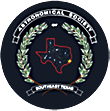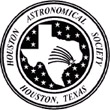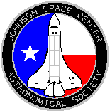| Amateur Research |
 |
 |
 |
| Written by Don Wells | |||||||||||
|
In the Houston (Texas) metropolitan area, amateur astronomy is rich and active. Among area astronomy clubs are the Fort Bend Astronomy Club, Houston Astronomical Society, Johnson Space Center Astronomical Society and North Houston Astronomy Club. Houston Community College students also gather to enjoy and learn about astronomy with their own club, the Star Squad. Club meetings are valuable opportunities for members and visitors to learn about astronomy and share experiences. As all the Houston area clubs hold their meetings on different Friday nights, almost every week of the year sees an astronomy club meeting somewhere in the area. Members of the Fort Bend Astronomy Club's A-Team will use the Rice University / Houston Community College Telescope at McDonald Observatory to search for Kuiper Belt Objects (KBOs). The Kuiper Belt, which is located at the most distant reaches of our Solar System, is thought to be the source of comets and leftover material from the formation of the Solar System. Discovering and studying the behavior of these objects could reveal clues about the Solar System's beginnings and expand our knowledge of the population of this region of the Solar System.
|
|||||||||||




